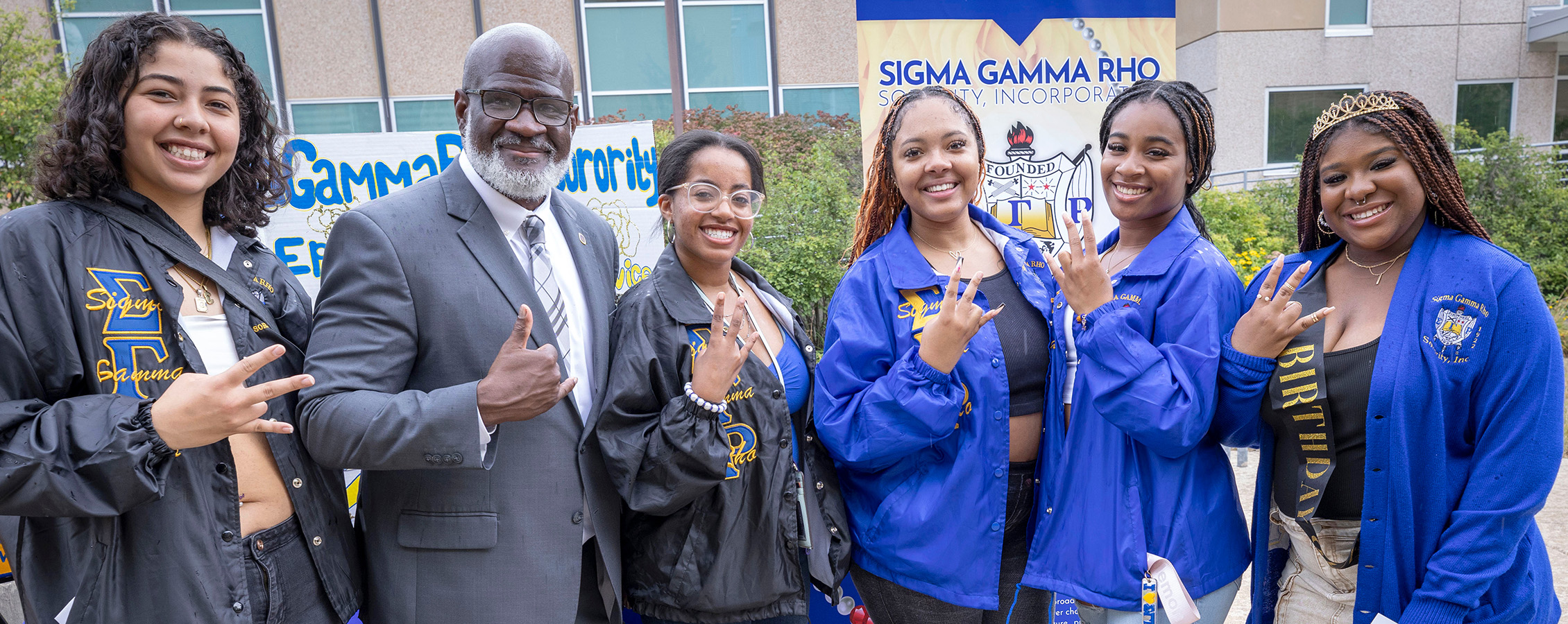Hazing Prevention
Just Report It
If this is an emergency or someone is in danger, call 911.
Hazing of any kind is illegal and strictly prohibited at the University of Wisconsin-Whitewater. UW-Whitewater seeks to promote a safe environment where students may participate in activities and organizations without compromising their health, safety, or welfare.
What is Hazing?
The UW-Whitewater Anti-Hazing policy defines hazing as:
- Any intentional, knowing, or reckless act committed by a person (whether individually or in concert with other persons) against another person or persons regardless of the willingness of such other person or persons to participate, that:
- is committed in the course of an initiation into, an affiliation with, or the maintenance of membership in, a student organization; and
- causes or creates a risk, above the reasonable risk encountered in the course of participation in the institution of higher education or the organization (such as the physical preparation necessary for participation in an athletic team), of physical or psychological injury including:
- whipping, beating, striking, electronic shocking, placing of a harmful substance on someone’s body, or similar activity;
- causing, coercing, or otherwise inducing sleep deprivation, exposure to the elements, confinement in a small space, extreme calisthenics, or other similar activity;
- causing, coercing, or otherwise inducing another person to consume food, liquid, alcohol, drugs, or other substances;
- causing, coercing, or otherwise inducing another person to perform sexual acts;
- any activity that places another person in reasonable fear of bodily harm through the use of threatening words or conduct; any activity against another person that includes a criminal violation of local, State, Tribal, or Federal law; and
- any activity that induces, causes, or requires another person to perform a duty or task that involves a criminal violation of local, State, Tribal, or Federal law.
Hazing is not tolerated at the University of Wisconsin-Whitewater. Not within our sororities and fraternities, our athletic teams, sports clubs, registered student organizations, the band or anywhere else.
For hazing to stop, it must be reported. All reported incidents of hazing will be investigated, and all individuals involved in hazing activities are subject to both criminal liability and/or university discipline.
Students who have witnessed or have knowledge of a possible hazing incident, should also report the incident immediately to the Office of the Dean of Students, University of Wisconsin-Whitewater Police, and/or local law enforcement. If emergency assistance is required, call 911.
University of Wisconsin-Whitewater Police
262-472-4660 (non-emergency)
Office of the Dean of Students
Report an Incident
262-472-1533
deanofstudents@uww.edu
EthicsPoint
EthicsPoint provides a confidential and anonymous method for reporting illegal or unethical conduct that violates University of Wisconsin-Whitewater policies.
You're not alone
If you or someone you know has experienced hazing, or thinks that their experience may be considered hazing, support is available. View our list of resources below to learn more about the support services available.
Campus Resources
University Health and Counseling Services (UHCS)
Dean of Students Office
UW-Whitewater Police Department
Winther Counseling Services (WSC)
University Policy and Wisconsin Law
University of Wisconsin - Whitewater Anti-Hazing Policy
Student Conduct Code - Chapter 17.09 (5)
State Law - 948.51
National Hazing Hotline
Monitored by a Cincinnati law firm, callers may remain anonymous when using this system. Reports of suspected hazing are relayed to the national fraternity or sorority that may be involved. Call 1-888-NOT-HAZE (1-888-668-4293).
Hazing can be physically and emotionally harmful. There are available resources if you need support or medical attention as the result of hazing activities.
National Resources
This national organization is dedicated to hazing prevention in college and university student groups. Visit their website for hazing facts, special programming information, and to stay informed by signing up for their free e-newsletter.
This website was created to help educate thousands of students, parents, and educators on the topic of hazing. Recommended reading materials as well as suggested avenues for personal involvement are just a few of the resources that can be found here.
Educational Programming
UW-Whitewater is committed to maintaining a safe, inclusive, and respectful campus community. Hazing has no place here. Through prevention education and training, we equip students, faculty, and staff to recognize, report, and stop hazing behaviors.
Key prevention efforts include:
- Greek Life Training through mandatory all-member meetings, pre-intake sessions, national programming, and Greek 101.
- Student Organization Education provided annually during the student organization recognition process.
Together, we’re fostering a campus culture built on dignity, safety, and accountability.
Prevention Organizations
Our Commitment to a Safe Campus.
UW-Whitewater is committed to fostering a safe, respectful, and inclusive campus environment. In compliance with the Stop Campus Hazing Act, we have published our Campus Hazing Transparency Report.
This report shares information about hazing incidents reported to campus officials or local law enforcement, including the type of incident, the organization involved, and the outcome of any investigation. By sharing this information, we hope to increase awareness, support prevention efforts, and strengthen our commitment to student safety and well-being.
The Annual Security & Fire Safety report summarizes crime data including hazing from the three previous calendar years, provides information about crime warnings, crime reporting and response, disciplinary policy and procedure, fire safety, and programming on campus to prevent crimes — especially sexual assault, domestic violence, dating violence, and stalking.

